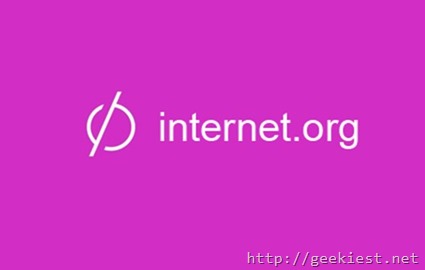
Facebook is running “Save Free Basics” campaign for its Indian users. Many people did what Facebook suggested to do because they were unaware of what are they doing. This campaign says send a message to TRAI and tell them not to shutdown the Free Basics program which will affect one billion people in India. Here is the pre written message written in that
"To the Telecom Regulatory Authority of India, I support digital equality for India. Free Basics provides free access to essential Internet services, such as communication, education, healthcare, employment, farming information and more. It helps those who can't afford to pay for data, or who need a little help with getting started online. And it's open to all people, developers and mobile networks. With 1 billion Indian people not yet connected, shutting down Free Basics would hurt our country's most vulnerable people. I support Free Basics and digital equality for India. Thank you."
The screen also have a checkbox which will be checked by default and that will send the notification to all your friends asking for sending this message.
So what is Free Basics? it is the new name of the Internet.org. which is against the net neutrality. The digital equality is a confusing term which they used in the message content.
TRAI released a Consultation Paper on Differential Pricing for Data Services. in which the Stakeholders can comment before 30th December and counter comments before 7th January 2016. in that the 12th and 17th point says
12
It may be argued that while these preferential tariffs offers effectively result in easy access to these websites etc., it may also result in making the entry of certain websites through the pipes of the TSPs more difficult. For example, a TSP or a group 6 of TSPs could come up with such differentiated tariff offers wherein they disincentivize access to certain websites by putting higher tariffs for accessing them. In other words, accepting the principle that the TSPs should be able to provide differential and attractive tariff offers for different websites/content providers, whom they ‘like’, one is accepting the principle that service providers may also effectively prescribe non-attractive/prohibitive tariffs for some websites whom they may ‘not like’.
17
Some may argue that if above practice is permitted, TSPs may start promoting their own websites / apps/ services platforms by giving lower rates for accessing them. They may take advantage of owning the primary access of the consumer by offering better, unlimited connectivity, free or near free, when using their own service or service of their partner, while offering limited or capped connectivity at higher price when consumer accesses some other website/platform. This may be perceived to be an anti-competitive move that stifles innovation and competition, leaving absolute power in the hands of the TSPs
You can read more on this pdf.
What you think about Free Basics, Internet.Org and net neutrality? share your views with us.